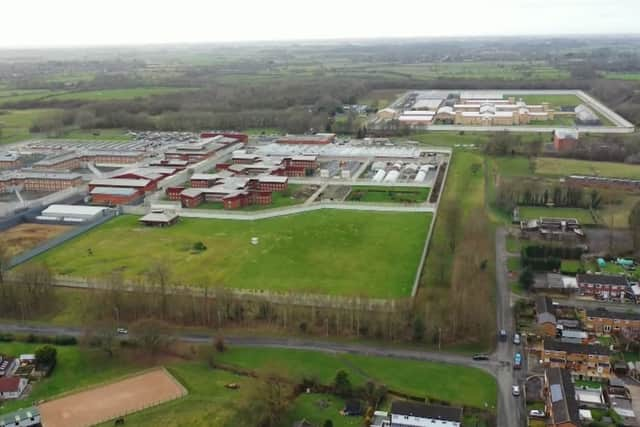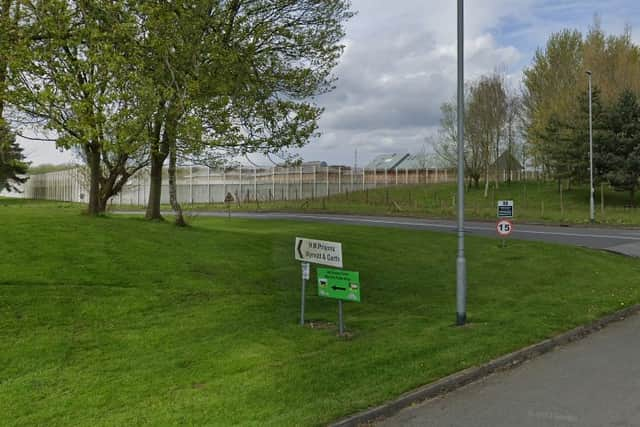Inmates at Leyland's HMP Wymott ‘developing drug problems over mental health services waiting times’
and live on Freeview channel 276
Inmates at a prison in Lancashire are developing drug problems because of long waiting times for mental health services, a report has found.
HM Inspectorate of Prisons published the report on HMP Wymott, a category C men's prison near Leyland, following an unannounced inspection in December 2023.
Advertisement
Hide AdAdvertisement
Hide AdInspectors found that one in five prisoners with mental health problems reported developing a substance misuse problem since arriving at the prison.
The centre refers about 70 prisoners to mental health services each month and 58% of all 1,182 prisoners report struggling with their mental health, the report said.


But staff shortages meant support was delayed, with the longest waiting times being 39 weeks to access psychological therapy, and more than a year to receive counselling.
Inspectors suggested that prisoners were turning to drugs because of the gap in mental health provision, adding: “Neither the health trust nor commissioners were addressing the level of need within the jail at the time of inspection.”
Advertisement
Hide AdAdvertisement
Hide AdGenerally, the staffing level was “poor” as employee sickness was considered “far too high”, which led to the cancellation of services and activities.
Some men spent 21 hours locked inside their cells during the working day, and the regime at the weekends was “poor for all”.
Chief inspector of prisons Charlie Taylor added that the influx of drugs into HMP Wymott was a “serious problem”.
Advertisement
Hide AdAdvertisement
Hide AdIn a survey, 45% of prisoners said it was easy to get drugs, compared with 32% in similar facilities.
A priority concern was that there was not enough searching or drug testing, and a “lack of technology to detect drugs”, the inspection report said.
The prison’s body scanner was reportedly not used often enough to detect concealed items and there was no enhanced gate security, which is used in other prisons.


In the six months before the inspection, there were requests for 730 searches but less than a third of these were completed, and only a third of suspicion drug tests had been done.
Advertisement
Hide AdAdvertisement
Hide AdIn the previous inspection in 2016, the watchdog recommended that “suspicion drug testing should be adequately staffed to ensure that all testing is carried out appropriately, within identified timescales and without gaps in provision”, which was not achieved.
Since that inspection, there have been four deaths at HMP Wymott confirmed to be linked to drugs.
As of the recent inspection, 281 prisoners were receiving support for substance misuse problems.
Priority concerns, which required immediate attention by leaders and managers, included that drugs were too easily accessible, and the mental health and substance misuse teams did not meet prisoners’ needs.
Advertisement
Hide AdAdvertisement
Hide AdMr Taylor said: “The influx of drugs at Wymott remained a serious problem. It was a cause of debt that resulted in prisoners self-isolating and self-harming because of their fears of violence.
“There were limited resources available to keep drugs out of the prison with no scanners, systematic checks on staff or adequate technology to reduce the frequent arrival of contraband-laden drones over the large perimeter fence.”
A Prison Service spokeswoman said: "HMP Wymott has already taken decisive action to address the concerns raised in this report including boosting staffing levels, increasing time out cells, and improving mental health support.
"We've also invested £100m in tough security measures such as X-ray body scanners to stop more contraband entering jails."